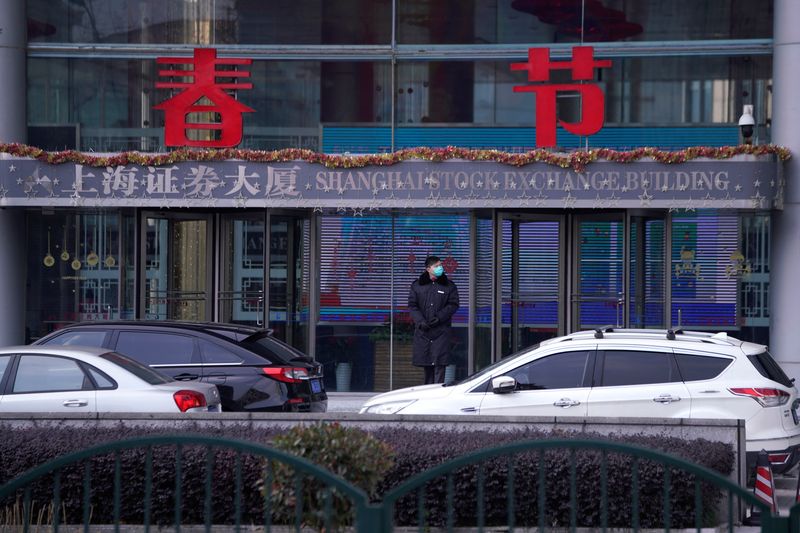By Summer Zhen
HONG KONG (Reuters) - Global investors continued to slash their exposure to China equities in January amid a protracted stock market rout, despite depressed valuations, Morgan Stanley data shows.
China and Hong Kong equities saw a combined $2.6 billion net outflow from active long-only managers last month, Morgan Stanley's quantitative research team said in a report released to clients this week.
That eased from $3.8 billion in net outflows in December, but highlighted one of the major factors behind a dismal start to the new year for Chinese stock markets that has started to alarm regulators and other policymakers.
China's blue-chip CSI 300 Index fell 6% in January, while Hong Kong's Hang Seng slumped 9%. In contrast, Japan's Nikkei Average rose 8% and the U.S. S&P 500 added 1.6%.
Three years of losses have also left China the cheapest market in the world. The forward price-to-earnings ratio of the CSI 300 is half that of those in the U.S. and Japan. Yet, China's weak economic recovery and a lack of meaningful stimulus measures have kept global investors away.
The selling in January was mainly driven by European-domiciled funds who ramped up their China exposure reduction, "aligning it with the stance of their U.S. counterparts," Morgan Stanley analysts led by Gilbert Wong said.
U.S.-domiciled funds, however, have paused further dumping of China equities, according to the note. The rest of the outflows during the month were mainly from investors' redemptions, the note said.
Meanwhile, active managers with China holdings continued their rotation from value stocks to growth stocks, as they added electric vehicle, media and internet companies in January, Morgan Stanley analysts said.

Battered Chinese stocks leapt to their largest one-day gain in two years on Tuesday and the yuan rose on a slew of signals that authorities are strengthening their resolve to support slumping markets.
But some analysts said all that seemed to be supporting the market bounce was buying by state-backed investors dubbed the "national team", not a sudden reversal of dour investor sentiment, with few signs policymakers would act soon to address underlying structural economic problems such as weak demand and deflationary pressures.